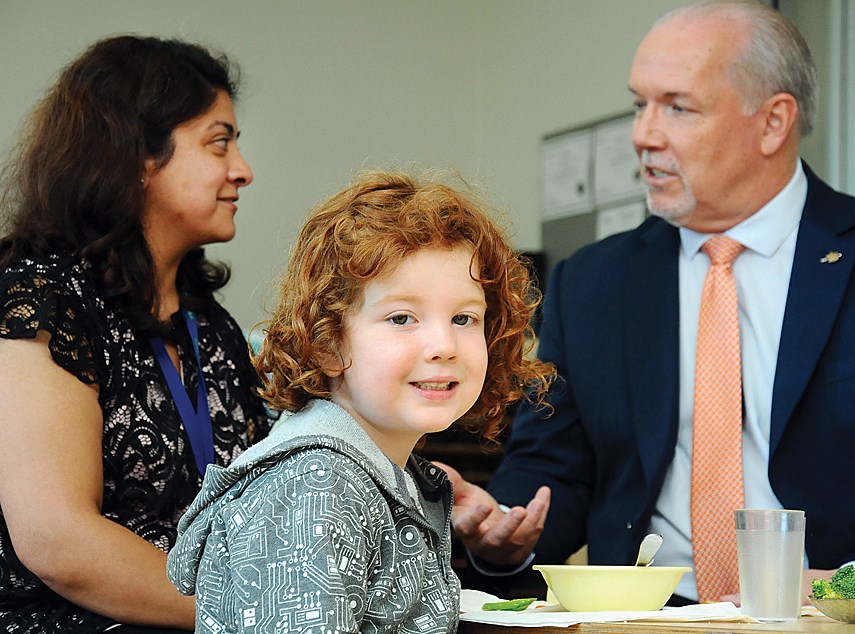The need for housing, and how that ties into traffic gridlock, was one of the main issues raised in discussions on “affordability” Wednesday as B.C. Premier John Horgan paid a visit to North Vancouver.
Horgan stopped for lunch with kids at Novaco Child Care – one of the locations where the government’s $10-a-day child-care program is being piloted – before sitting down to chat with members of the Persian community at a Lonsdale-area cafe.
“Housing, housing and more housing,” was top of mind for most people he spoke with, Horgan said following the event.
A wide-ranging discussion with about 25 people at the Echo Cafe, hosted by NDP MLA Bowinn Ma, included questions about foreign buyers, money laundering in the real estate market, the need for more rentals as well as frustrations voiced by some developers present about the District of North Vancouver’s stance on slowing the pace of approvals.
Horgan told the group the government was surprised to discover the scope of the money laundering issue. “We didn’t anticipate the scale of the problem in the housing market,” he said.
“We knew it was large. We didn’t know it was massive.”
He said the recently announced public inquiry will point to how the problem developed as well as how to prevent it in the future.
“We’re all victims when illegal money comes in and distorts the housing market,” he said, adding not all money being laundered is from foreigners. It also comes from homegrown illegal activities, he said.
Horgan pointed to the speculation and foreign buyers’ tax as measures that are also helping to cool the market.
Data is just coming in on the impact of the speculation tax, he said. “Ninety-nine per cent of British Columbians are not affected by the speculation tax at all because they’re not speculating in the market,” he said. “I believe the policy is a good one.”
Horgan told the group a mix of new, denser housing is needed on the North Shore, tied to rapid transit so it doesn’t add to existing traffic snarls.
Ma added one of the biggest contributors to traffic is lack of affordable housing which means people who work on the North Shore are mostly commuting in over the bridges from other areas. “We are generating our own traffic problems,” she said.
As evidence of that, Ma pointed to increasing congestion along Marine Drive in West Vancouver, despite a declining population, and contrasted that with a rising population in the Lonsdale core of North Vancouver, which has better transit and is less congested.



